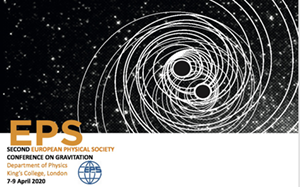Speakers
Description
From 1969 on, Lunar Laser Ranging data are collected by various observatories and analyzed by different analysis groups. In the past years observations with larger telescopes (APOLLO) and at infrared frequencies (OCA, Wettzell) are carried out, which resulted in a better spread of precise LLR data over the lunar orbit and the observed reflectors on the Moon. In Germany, from the early 80ies on, the software package LUNAR has been developed to study the Earth-Moon system and to determine several related model parameters. Research covered physical libration and orbit of the Moon, coordinates of observatories and retro-reflectors, Earth orientation parameters and, with special modifications, tests of Einstein’s theory of relativity. Including the new data, we show recent results for relativity parameters related to the equivalence principle, temporal variation of the gravitational constant and for a selection of PPN (Parametrized Post-Newtonian) parameters.
We acknowledge with thanks that more than 50 years of processed LLR data have been obtained under the efforts of the personnel at the Observatoire de la Côte dAzur in France, the LURE Observatory in Maui, Hawaii, the McDonald Observatory in Texas, the Apache Point Observatory in New Mexico, the Matera Laser Ranging station in Italy and the Wettzell Laser Ranging System in Germany. This research was funded by the Deutsche Forschungsgemeinschaft (DFG, German Research Foundation) under Germany’s Excellence Strategy – EXC-2123 QuantumFrontiers – 390837967. Further financial supports were from the Strategic Priority Research Program of the Chinese Academy of Sciences, the National Natural Science Foundation of China and the Deutsches Zentrum für Luft- und Raumfahrt (DLR).

